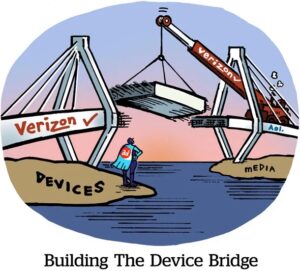“The Sell Sider” is a column written for the sell side and contains fresh ideas on the digital revolution in media.
Today’s column is written by Joe Root, CEO and co-founder of Permutive.
Google shook the industry Wednesday when it confirmed that it was removing identifiers (a.k.a. third-party cookies) from its products for good – without building a replacement.
This is the natural direction for the ad industry to truly protect user privacy. User IDs in the bidstream are not a privacy-compliant way to continue targeting users on the open web. Their announcement signals the inevitable end of identifiers, and will put anyone that has invested in, and bet on, user identifiers alone, into a spin.
A chaotic fragmented ecosystem
Once Google opts out of identifiers, every single ecosystem is going to be massively fragmented and partitioned. This is what buyers are dealing with: Email-based identifiers will work in Safari if you’re using The Trade Desk, but not in Google’s DV360. At the same time, email identifiers won’t work in Apple apps, but third-party identifiers will work in Google Apps. Google’s FLoCs will work in Chrome, but won’t work in Safari or Firefox, so how will Google’s DV360 function in those browsers?
Amid this chaos is a clear signal that if advertisers want to buy within the Google Ads ecosystem, it’s not going to be identifiers that enable you to do it.
What should brands do amid this chaos? Without identifiers in the bidstream, working directly with publishers is going to be the only clean and safe route for advertisers.
Adtech needs to accept that cross-domain and app tracking is over, identifiers in the bidstream are over, and it’s time to focus on what’s next — cohorts built from publisher first-party data.
Cohorts will be large enough to prevent microtargeting, and will allow advertisers to build audiences without relying on a cross domain identifier — work in this space is already underway and will require direct relationships.
Privacy by design
While some have responded to Google’s announcement as a surprise, it was an inevitability. Google Ads was always going to follow the new rules Google Chrome was creating, rather than work around them: Google Ads is putting its trust in the Privacy Sandbox. Skeptics will say that this is because they’re confident the Privacy Sandbox will work in their favor, and many of the proposals like FLoCs and FLEDGE certainly do.
Google refusing to use other email-based identifiers also shows that privacy is getting the attention it deserves, and it’s time for it to take center stage. The implications of tracking people across the web is taking its toll on the very people it’s trying to reach. Consumers have had enough. You only need to look at the ICO investigation into RTB to understand why.
While Google may not be as altruistic as it seems, this privacy-focused sentiment is evident in Google’s post. Its ads team plans to deepen its support for solutions that “build on these direct relationships between consumers and the brands and publishers they engage with.”
Direct relationships: Brands and publishers are ready
Direct relationships used to be the dominant way of transacting before adtech got obsessed with microtargeting at the expense of privacy. Now we can return to what the advertising ecosystem originally set out to do.
We should have a cohort-based infrastructure where an advertiser can find an audience, the publisher gets paid for having that audience, and the consumer gets more relevant advertising. In this setup, data stays with the data owner, where the value is created.
Publishers and brands have been building out their first-party data strategies for a number of years. Now they need to build closer relationships with each other in order to transact. Google’s announcement might add chaos in the interim, but the future is clear: publishers and brands who have been putting in the work on privacy-compliant first-party data will thrive.
Advertisers can and should be able to buy from their most trusted partners, in a privacy-complaint way, without anyone losing their value in the path from brand need to publisher supply.














